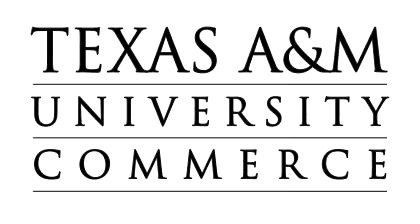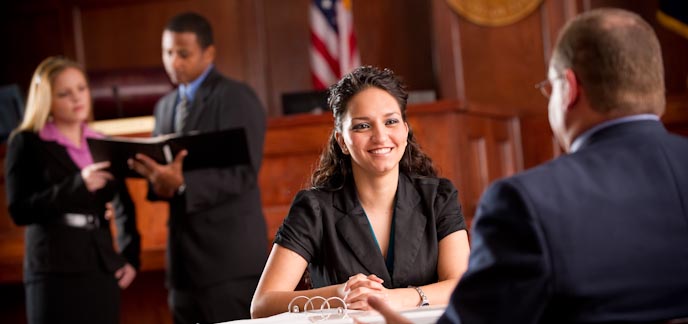English 500 Level Courses
501. Structure of the English Language. Three semester hours.
A thorough analysis of the grammatical structure of English employing contemporary as well as more traditional methodologies. Emphasis varies among phonology, morphology, syntax, text/discourse analysis and historical developments in the language.
503. Multicultural Literature and Languages. Three semester hours.
An examination of selected works from Africa, Europe, Latin America, or different cultures within the United States. Considers multicultural groups in relation to their literature, language, and culture.
504. Picture Books and the Art of Illustration. Three semester hours.
An approach to the modern art of the picture book, stressing the relationship between art and text. Authors and illustrators examined may include Caldecott, Greenaway, Wildsmith, de Paola, and Sendak.
505. History and Survey of Children's Literature. Three semester hours.
An overview of children's literature, emphasizing the history and development of classic works. Authors treated may include Potter, Carroll, Alcott, Baum, MacDonald, and Kipling.
506. Problems in Adolescent Literature. Three semester hours.
Designed for parents, teachers, prospective teachers, and librarians in middle, junior high, and senior high schools, this course focuses on the major authors and genres of adolescent, or "young adult" literature. Emphasis is given to specific problems such as censorship and book reviewing.
507. The Oral Tradition and Modern Fantasy for Children. Three semester hours.
A study of fables, folk and fairy tales, myths, and modern fantasy for children. Special attention will be paid to the relationship between oral and written forms. Works by Aesop, Grimm, Perrault, Sendak, Lewis, Tolkien, and Cooper may be included.
508. Historical and Realistic Literature for Children. Three semester hours.
An examination of representative works of historical and realistic fiction for children. Authors treated may include O'Dell, Wilder, Sutcliff, Twain, Cleary, and Paterson.
509. Literary Genres. Three semester hours.
An examination of one or more literary genres. Topics and approaches may vary, but might include a focus on a particular historical period, theme, or critical approach to selected poetry, drama, non-fiction prose, fiction, or film. May be repeated for credit when the emphasis changes.
513. Learning Through Composing. Three semester hours.
Examines to what extent and how composing influences learning and knowledge, how the nature of knowledge is affected by composing and the kinds of knowledge transformations that occur through composing. Includes attention to uses of writing for learning across the curriculum.
515. History and Theory of Rhetoric. Three semester hours.
A study of the major theories and theorists of rhetoric from classical times to the twentieth century. Emphasis varies from semester to semester. Attention is given to such theorists as Aristotle, Sophists, Plato, Cicero, Quintilian, Kinneavy, Perelman, Richards, Weaver, and Moffett. May be repeated for credit when the emphasis changes.
516. Colonial and Federalist Literature. Three semester hours.
This course will treat journals, sermons, reminiscences, poetry, and other writings beginning with John Smith and spanning the colonial writers such as William Bradford, John Winthrop, Joseph Cotton, the Mathers, Jonathan Edwards, and Anne Bradstreet in order to capture the spirit of a vibrant New England, experiencing social, religious, and economic change, from the Puritan dominance in New England society and its fragmentation, through the Federalist period and the founding of the nation by Thomas Jefferson, Benjamin Franklin, James Madison, and others.
518. Thesis. Introduction to Research in English Literature and Language. Six hours.
In this course the student will be instructed in the nature of research. An early opportunity for preliminary consideration of suitable thesis problems will be given to the student, and no credit will be reported in the course until the thesis has been completed and has passed through the regular channels of acceptance. The course as thus outlined will carry six semester hours credit. Graded on a satisfactory (S) or unsatisfactory (U) basis.
519. American Literary Realism. Three semester hours.
Studies in various aspects of American literature from about 1865 to about 1920, the time usually spoken of as the Age of Realism but often called the Age of Realism and Naturalism. Some important authors of this period include Twain, Dickinson, H. James, S. Crane, Dreiser, Eliot, and Frost.
520. Approaches to Literary Theory. Three semester hours.
A study of major trends in literary theory from Plato and Aristotle to the present. Primary focus is on various approaches to analyzing literature, including formalist, psychological, Marxist, structuralist, feminist, reader-response, and new historicism.
521. Modern American Literature. Three semester hours.
Studies in various aspects of the period in American literature extending roughly from 1920-1950. Important authors during this period may include Hemingway, Fitzgerald, Wright, Faulkner, Warren, Frost, Eliot, Stevens, K.A. Porter, Miller, and O'Neill. Topics which might be covered include imagism, vorticism, the war novel, proletarian literature, the Great Depression in literature, agrarianism, and the Lost Generation. May be repeated for credit when the emphasis changes.
522. Major Figures in American Literature. Three semester hours.
A treatment of outstanding figures in American literature, such as Twain, Thoreau, Hemingway, Dickinson, Ellison, Bellow, Cather, or Warren, or a treatment of two or three important figures who bear some kind of close relationship to one another as members of a particular school or through personal relationships. May be repeated for credit when the emphasis changes.
525. Contemporary Literature. Three semester hours.
A study of the literature of the last two or three decades, reviewing the international scene or concentrating perhaps on a single genre or topic, such as recent American fiction or post-War British poetry.
526. Studies in Shakespeare. Three semester hours.
A study of selected comedies, tragedies, histories, and the major critical theories. Also emphasizes the historical, intellectual, and social background of Shakespeare's England.
527. American Renaissance. Three semester hours.
Studies in various aspects of American literature from the Romantic period, especially the period of Poe, Hawthorne, Melville, Emerson, Thoreau, and Whitman, often labeled the American Renaissance. Dates covered range from about 1820 to around 1865. Topics covered may include transcendentalism, the development of the American short story and novel, and the origins of American nature poetry.
531. Major Figures in British Literature. Three semester hours.
A thorough study of the age, the work, and the influence of a selected literary figure such as Chaucer, Spenser, Samuel Johnson, Blake, Hardy, Dickens, Auden, Lawrence, Fowles, and Greene; or treatment of two or three important figures who have some close relationship to one another. May be repeated for credit when topic changes.
534. Selected British Literature Before 1660. Three semester hours.
Individual investigation and group discussion of selected topic. May focus on major figures, critical or historical approaches, themes, or genres in British literature before 1660. May be repeated for credit when the emphasis changes.
536. Selected British Literature, 1660-1830. Three semester hours.
Individual investigation and group discussion of selected topic. May focus on major figures, critical or historical approaches, themes, or genres in British literature from 1660-1830. May be repeated for credit when the emphasis changes.
537. Selected British Literature, 1830-1945. Three semester hours.
Individual investigation and group discussion of selected topic. May focus on major figures, critical or historical approaches, themes, or genres in British literature from 1830-1945. May be repeated for credit when the emphasis changes.
540. Development of the British Novel. Three semester hours.
A study of the origin and development of the novel in Great Britain from the eighteenth century to the present. Novels by authors such as Fielding, Austen, Dickens, Hardy, Woolf, and Joyce may be included.
555. General Linguistics. Three semester hours.
An advanced survey of applied language science with an emphasis on the relationship between the structural systems of language and the mental representation of ordinary experience. Stresses phonology, morphology and syntax.
557. Teaching English as a Second Language. Three semester hours.
This course focuses on the linguistic, psychological, and socio-cultural foundations for teaching English to native speakers of other languages. It surveys historical as well as current trends in the methods and materials of ESL, of language testing, and of language-program evaluation.
558. Sociolinguistics. Three semester hours.
This course focuses on the various aspects of human behavior and sociocultural interaction that affect language structure, use, learning, and acquisition. Topics discussed include sociolinguistic methodology, multilinguistics, speech-act types, language styles, language and sex roles, and the sociolinguistics of literature.
562. Psycholinguistics. Three semester hours.
A survey of the cognitive, affective and developmental constraints on language acquisition and use. Topics include multilingualism; language, mind and brain; language processing and comprehension; first and second language acquisition; and research tools.
570. Strategies in Composition. Three semester hours.
A survey of approaches and strategies in the composing process and in the analysis of forms in composition, with particular emphasis on professional writing.
571. Theory & Practice of Teaching Reading & Writing in College. Three hours
Study of the objectives of college English; methods and materials for the teaching of college English, including the audio-visual; testing techniques; and curriculum planning and administration of English programs.
578. Workshop on Writing. Three semester hours.
A workshop in writing poetry, fiction, non-fiction prose, or screenplays. Extensive writing and peer critiques. May be repeated for credit when the emphasis changes.
579. Style and Stylistics. Three semester hours.
A study of style using the techniques of linguistic and rhetorical analysis. The course will emphasize writing in various styles, their functions and effects, and techniques of criticism that employ stylistic analysis.
580. Texts and Genders. Three semester hours.
A critical examination of how gender differences influence reading and writing strategies of fiction, non-fiction, poetry, and film, including issues of gender and style, gender and usage, and gender stereotyping. Crossover course: May count for either area of specialization.
581. Major Figures in World Literature. Three semester hours.
A study of major literary works from both classical and contemporary literature in diverse genres outside the English language tradition. May be repeated for credit when the emphasis changes.
589. Independent Study. One to four semester hours.
Individualized instruction/research at an advanced level in a specialized content area under the direction of a faculty member. May be repeated when the topic varies. Prerequisite: Consent of department head.
595. Research Literature and Techniques. Three semester hours.
Designed for students who choose the 36-hr degree, this course requires an extensive investigation into a topic agreed upon by the students and the adviser. Graded on a satisfactory (S) or unsatisfactory (U) basis.
596. Practicum in TESOL. One to three semester hours.
Hands-on application of TESOL methods and techniques. In coordination with an Applied Linguistics adviser, candidates will teach in a mutually-agreed upon ESL setting. Graded on satisfactory (S) and on unsatisfactory (U) basis.
599. Bibliography and Methods of Research. Three semester hours.
For beginning literature and languages graduate students who have not had an equivalent graduate-level course, this course covers manuscript preparation and format; research techniques for literary, linguistics, and composition/rhetoric studies; and research methods for foreign language majors.



